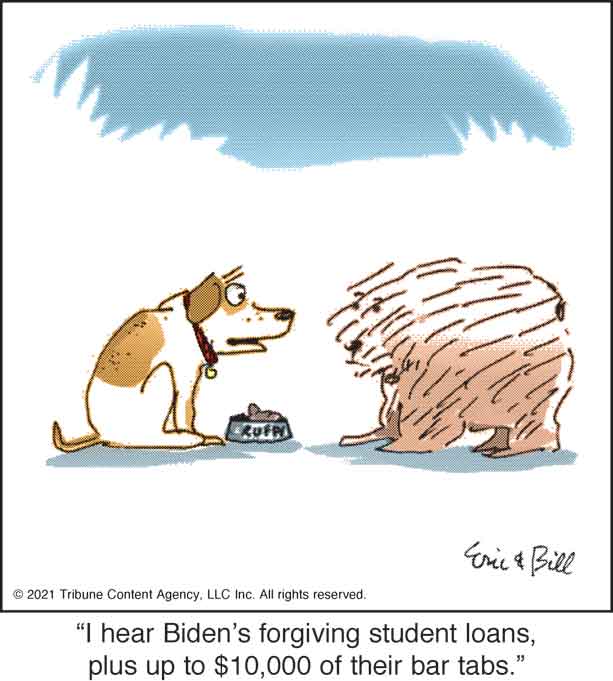
Vote buying is illegal in the United States. The law says: "Whoever makes or offers to make an expenditure to any person, either to vote or withhold his vote, or to vote for or against any candidate; and whoever solicits, accepts, or receives any such expenditure in consideration of his vote or the withholding of his vote —Shall be fined under this title or imprisoned not more than one year, or both; and if the violation was willful, shall be fined under this title or imprisoned not more than two years, or both.
For fact checkers that's 18 U.S. Code § 597 - Expenditures to influence voting.
Politicians have managed to circumvent the law by calling what they do by another name and offering incentives other than direct cash payments to voters to check the box for a certain candidate. "Walking around money" on Election Day has long been a tradition, especially in some big cities with large minority populations.
Some critics say President Joe Biden is engaging in a more sophisticated type of vote buying in his attempt to forgive student loan debt.
Last week, U.S. District Judge Randal Hall in Georgia (appointed by George W. Bush) announced that he will let a temporary restraining order that had frozen the Biden plan expire. The ruling had more to do with the plaintiffs' lack of "standing" than with the president's constitutional authority to forgive loans, which the Supreme Court has ruled he does not have. That has not stopped Biden from trying to circumvent the high court. Judge Hall directed the case be transferred to Missouri, since the states that sued claim Biden's plan would most harm student loan servicer Mohela, or the Missouri Higher Education Loan Authority.
What few, if any, have discussed is whether student loan forgiveness would make a noticeable difference in the lives of those with college debt, make no difference, or harm them now and in the future.
Financial adviser Ric Edelman has examined the issue. On a recent podcast, Edelman said: "Studies are now showing that the people who had those student loans, who now don't have to repay them are still under financial stress. Borrowers who were late on payments or even defaulted on their student loan debt are often still dealing with other financial problems, like low credit scores, and other debt, like credit card debt."
Edelman cites a study by University of Chicago professor Constantine Yannelis who concluded: "For the typical borrower, the forgiveness is nice, but not life-changing."
Aside from the argument that forgiving current student loan debt is unfair to those who have already paid off their loans and others who are or will be piling up future debt (and don't Democrats constantly tell us they are all about "fairness"?), the only logical, though probably cynical answer to the question of why this is occurring so close to the election is that Biden is trying to "buy" more of the youth vote.
It didn't seem to work this time for Biden. National Public Radio reported in June, before Biden dropped out, that "among younger Black, Latino and Asian American voters, who overwhelmingly sided with Biden in 2020, and at higher rates than young white voters did, support has considerably faltered, according to the University of Chicago's latest GenForward survey."
It looks like this form of "vote buying" may not be working. With just a month to go until the election, it's too late to come up with alternative vote buying scheme.
(COMMENT, BELOW)
Cal Thomas, America's most-syndicated columnist, is the author of 10 books.


 Contact The Editor
Contact The Editor
 Articles By This Author
Articles By This Author